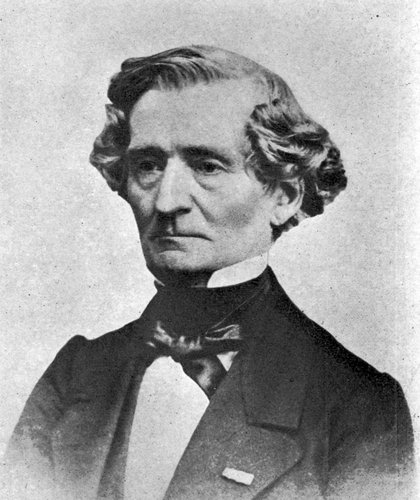
Hector Berlioz
Hector Berlioz (1803–1869), the French Romantic composer, conductor, writer and music critic was born in La Côte-Saint-André, into a wealthy aristocratic family. In 1824 he left off his medical studies, and two years later started to attend the Paris Conservatoire. In 1830 his cantata La dernière nuit de Sardanapale won him the coveted Prix de Rome, a prize for promising art students with a five-year pension. The same year he composed one of his chefs-d’œuvre, the Symphonie Fantastique, which caused a scandal at its premiere thanks to its innovative form and content. The French audience continued to be less enthusiastic about Berlioz than those in Germany or Russia. While he was already taking part in successful concert tours abroad, he made a living in his native land as a librarian and music critic. He also authored one of the most important theoretical works of the 19th century, Traité d’instrumentation et d’orchestration modernes. He is now considered one of the most remarkable and influential figures of 19th-century music, who contributed countless new impulses to the art. Symphonie Fantastique and Harold en Italie mark a watershed in the history of music: though the roots of programmatic music go back to the baroque period, these were the first truly significant works in the form. It is in Berlioz’s music that the idée fixe, a precursor to the leitmotif of Wagner’s operas, makes its first appearance, just as the subsequent symphonic poems of Liszt and Richard Strauss would also be unimaginable without his work. His other major works include the operas Les Troyens and Benvenuto Cellini, the programmatic symphony Roméo et Juliette, the “dramatic legend” La damnation de Faust, the trilogy called L’enfance du Christ, and his Requiem. Berlioz died in Paris in 1863.